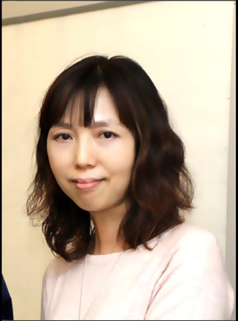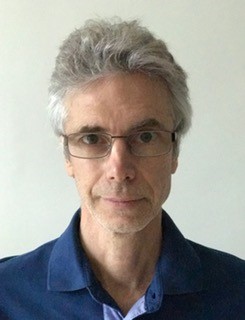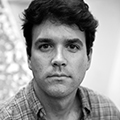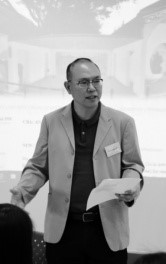We are pleased to confirm the following keynote speakers who will bring to the Writing Roundtable both a wealth of expertise and experience.
Keynote Speakers
 | Prof. Icy LeeProfessorFaculty of Education The Chinese University of Hong Kong Icy Lee is a Professor in the Faculty of Education at The Chinese University of Hong Kong, where she is currently serving as Chair of the Department of Curriculum and Instruction. Her publications have appeared in international journals such as the Journal of Second Language Writing, TESOL Quarterly, Language Teaching, System and Language Teaching Research. She is Co-editor of the Journal of Second Language Writing and Senior Associate Editor of The Asia-Pacific Education Researcher. The Power of Stories: Teacher Narrative as an Impetus for Professional Development To be a teacher means more than to be a professional who possesses knowledge and skills... Teaching is a human relationship. It is the teacher as a person who is key to learning. (Weserhoff, 1987, p. 193) Given the personal nature of teaching and teacher learning, the most powerful kind of teacher knowledge is not formal and abstract but instead personal and purposeful (Osterman, 1991). To develop such teacher knowledge, personal narratives have a pivotal role to play. Personal narratives, told through the teachers’ own lenses, allow them to explore their experiences, develop critical reflection, construct their personal theory of teaching, find their own voices, and above all, grow professionally. Traditional teacher education is often regarded as a low-impact enterprise; it tends to provide teacher learners with a mélange of ideas that are not necessarily grounded in the realities of teaching. Teacher development, however, is humanistic and constructivist, recognizing teachers’ experiences and voices (Schwarz, 2001). This presentation illustrates the power of stories as an impetus for teachers’ professional development through sharing of several teacher personal narratives, including my own as well as those gathered from a teacher education course that provides a platform for in-service teachers to construct their personal narratives through reflecting on critical incidents. The teacher stories demonstrate that narrative writing can provide a powerful tool for critical reflection, helping teachers construct a better understanding of themselves, teaching and learning, and what it means to be a teacher. Through finding their voices in narrative writing, teachers are helped to develop into reflective practitioners and change agents (Cochran-Smith & Lytle, 2009). |
 | Dr. Paul StapletonAssociate ProfessorDepartment of English Language Education Faculty of Humanities The Education University of Hong Kong Paul Stapleton is an Associate Professor in the Department of English Language Education, Faculty of Humanities at the Education University of Hong Kong. His interests are in L2 writing, critical thinking and research methodology. Google Translate as a disruptive force in L2 writing: A study of primary learners Google translate (GT) has become a useful tool for students learning English; however, there have been long-term concerns about the accuracy of its translations. Recent improvements using a neural network approach have improved GT’s outputs to a point where inaccuracies have been reduced giving L2 students greater confidence in its translations. In the present study, scripts written in English by Primary 6 students in response to a prompt were mixed together with a parallel set of scripts written by the same students in their native Chinese and then translated by GT into English. These scripts were then graded for quality of grammar, vocabulary and comprehensibility by teachers who were unaware of the GT-translated scripts. Results revealed that the GT-translated scripts received grades similar to or better than the scripts directly written in English by the students. The teachers’ reactions and beliefs about GT, and an analysis of GT’s output are discussed. The presenter will also speculate about what improving machine translation could mean for student motivation and foreign language teaching and learning. |
 | Dr. Jason S. PolleyAssociate ProfessorDepartment of English Language and Literature Hong Kong Baptist University Jason S Polley is an Associate Professor of English at Hong Kong Baptist University. His research interests include post-WWII graphic forms, literary journalism, Indian English fiction, and Hong Kong Studies. He has published on women in Banville, slum ideology in District 9, race in The Greenlanders, official narratives in Watchmen, Hong Kong Identity in Wong Kar Wai, and documentary in House of Leaves. He has articles forthcoming on reflexivity in A Suitable Boy, and parody in R Crumb. His monograph is titled Smiley, Franzen, DeLillo: Narratives of Everyday Justice. He has two creative nonfiction books: Refrain and Cemetery Miss You. He is co-editor of the essay collection Cultural Conflict in Hong Kong: Angles on a Coherent Imaginary. “Decolonizing Discipline: ‘Creative Projects’ and/as Critical Investment” Make it yours. Make it fun. Make it meaningful. In this talk I address how these three “Make it” imperatives are synonymous in the context of assigning “final projects” in lieu of “final essays” in the (advanced) undergraduate classroom. When a student cares, that is, when she is obliged to create some sort of hybrid new, rather than (re)produce yet another timeworn “essay,” the paradigm of learning alters from one demarcated by interpellation to one established in enthusiasm. Certainly, this openness, the very openness that leaves the parameters of evaluation/expectation undefined (after all, most students de facto overlook the potentials of the ubiquitous university “essay”), is not an immediate precursor to enthusiasm. Most of my students prima facie encounter the “too” loose parameters of “final project” with anxiety. But preliminary anxiety bests initial ennui, particularly when “creativity,” “critical thinking,” “originality,” and “agency” are not just institutional buzzwords being paid lip service to. The passive voice concluding my previous sentence is intentional. It speaks, in my experience (an experience increasingly indebted to expunging the artificial border between creativity and criticism) to student investment—and the lack thereof when students aren’t personally compelled to convince readers/viewers how and why their creative contributions are critically crucial. |
 | Mr James SheaPoet & Assistant ProfessorHong Kong Baptist University James Shea is the author of two poetry collections, The Lost Novel and Star in the Eye. A graduate from the Iowa Writers' Workshop, he has taught poetry writing at Nebraska Wesleyan University, the University of Chicago's Committee on Creative Writing, Columbia College Chicago's MFA Program in Poetry, DePaul University, and as a poet-in-residence in the Chicago public schools, where he received The Poetry Center of Chicago's Gwendolyn Brooks Award for Excellence in Teaching. A former Fulbright Scholar in Hong Kong, he is currently an assistant professor in the Creative and Professional Writing Programme at Hong Kong Baptist University. Oulipo in Hong Kong: An instructor of poetry writing at a university in Hong Kong, I draw on my experience in teaching writing techniques adapted from the Oulipo tradition to explore the use of procedural or constraint-based writing strategies for poetry writing in the English as a foreign language classroom. In addition to traditional poetic forms, such as the sestina and haiku, I find that Oulipian writing methods permit students to encounter poetry writing in a foreign language less as a monumental effort and more as approachable play; they also help to equalize the experience of writing poetry for all students, because although their abilities in English may vary, they must all contend with the same unconventional forms; and, finally, such forms open up the writing process to serendipitous discoveries by estranging the experience of writing a poem. This talk examines the use of rules-based poetry writing assignments informed by the Oulipo movement in relation to Viktor Shklovsky’s seminal theory of defamiliarization (ostranenie), and it includes a discussion of examples of student writing, including narrative poems, that engages constraint-based writing. It also contextualizes these writing methods in relation to students’ academic writing assignments by way of Rita Felski’s arguments toward renewing literary studies in The Limits of Critique and Uses of Literature. |
 | Dr. Eddie TayAssociate ProfessorDepartment of English The Chinese University of Hong Kong Eddie Tay is a poet, street photographer and literature professor at the Chinese University of Hong Kong. His teaching and research areas are linked to his creative interests in poetry and street photography. He has published research in the areas of creative writing, street photography as well as colonial and postcolonial Singaporean and Malaysian literatures written in English. He teaches the following undergraduate courses: Children’s Literature, Reading Poetry, and Creative Writing. He also teaches a special topics postgraduate course focusing on the exploration of Hong Kong culture via autoethnography, street photography and social media. His recent books include Dreaming Cities, a book of poetry and street photography, and Anything You Can Get Away With: Creative Practices, a book which blends scholarship with street photography and creative writing. The Department Poet: On Institutional Demands, On Writing from the Heart A creative writer situated within the university must deal with two sets of impulses. On the one hand, there is the institutional-bureaucratic impulse which asks for accountability, which quantifies teaching and learning into contact hours, which asks for “esteem measures” and the “impact” of one’s academic research outside of academia (via the upcoming Research Assessment Exercise). On the other hand, there is the joyful impulse that comes from playing with language, from the work of building a community of readers and writers, and from being immersed simultaneously in the flow of ideas, multiple literary traditions and the affective environment that Hong Kong offers. How is one to reconcile both sets of impulses? This is an autoethnographic paper that draws from personal experience in order to comment on the academic and English language creative writing landscape that is particular to Hong Kong. It will discuss a set of academic and creative writing practices I have embarked on somewhat serendipitously, which culminates in the understanding that literary work is not only about words on a page, but about a process of which the end-result or even its purpose right from the beginning cannot be fully predetermined. The work of literature is a creative process involving the interiority of the writer; it is also a social process that involves community-building. How may a creative writer communicate the value of this focus on the interiority and community-building such that it aligns with the goals of the institutional bureaucracy that is the university? That is the subject of this paper. |
